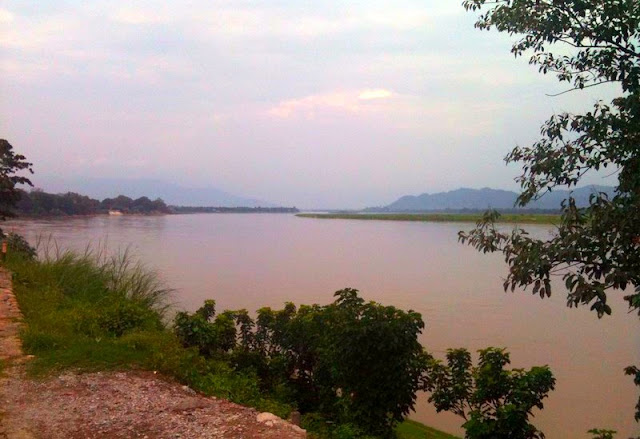I am currently at Durban, South Africa to cover the UNFCCC climate summit (COP17). The opportunity to cover the world's biggest exercise to fight Climate Change came when I won the Climate Change Media Partnership Fellowship - which is a joint initiative by Internews, Panos London and IIED. From now on, I am going to be sharing with you my experiences and understanding of COP17 in a series called DURBAN DIARY. Here goes the first post:
Getting down at 5.30 in Durban airport, I take a cab. The Cabbie, a 25 year old Zulu man called Mike, is happy that COP17 is happening. It means lots of people and lots of trips in taxi and money.
'So South Africa is hiding its smoking chimneys from the foreign visitors', I say to myself. But, that's not to bad, comparing to what our government does: Putting beggars in truck and shifting them out of the city overnight!
 |
| Accredited! With my press pass from UNFCCC |
Its evening, yet in the faded light I can see that the roads are wide, the air is clean and there is no garbage piled up anywhere, or plastics scattered. I say this to Mike. The city is good, he agrees, but is also very expensive. (Later, in the COP17 media center, I pay 8 Rand (1.2 USD) for a cup of tea).
And then he tells me, " there is no Africa in Durban".
I want to know what he means. The answer comes quick: SA is becoming too Americanized, too fast. And one of the negative result is that people like Mike can’t find a bride because, girls in city now don’t want to live with parents
"I come from over there – a village near Cape Town", he says. "Family is important,.parents are important. I want to live with my parents after I get married. I want my family to bless my marriage. But here, people of my age think living separately is a cool thing. I can’t find a girl who wants the same. Girls think I am too old fashioned."
Later in the evening I meet Max - a man from Port Elizabeth who works with the African Red Cross. I ask him about climate change. Durban looks very green and clean, are all places like this, I want to know. Max says that the govt has a smart way. ‘They have built service industries here and moved all the manufacturing industries to places like Cape Town and Port Elizabeth. Now, when tourists come,they don't know there are dusty, smoking places in this country. Like African culture, real environmental issues are kept out Durban," he quips.
'So South Africa is hiding its smoking chimneys from the foreign visitors', I say to myself. But, that's not to bad, comparing to what our government does: Putting beggars in truck and shifting them out of the city overnight!








